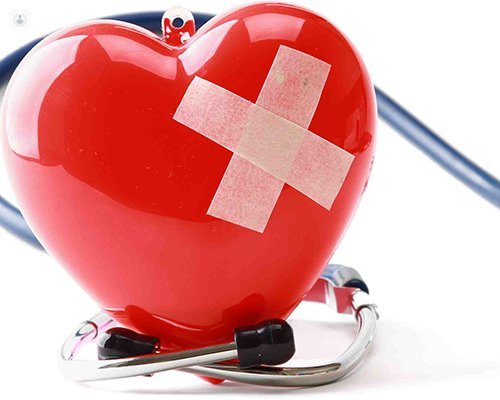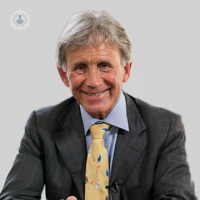Heart failure: what is it, and how is it treated?
Written by:Heart failure is when the heart cannot meet the demands of blood circulation due to the heart muscle failing to contract properly. It is a condition where congestion occurs in the lungs and tissues because of the improper heart function.
A recently discovered type of heart failure is diastolic heart failure, which is a reduction in performance of one or more of the heart’s ventricles. It is not the same as a heart attack (cardiac arrest), which is a rhythm disorder, and is possible to have a heart attack without having heart failure.
In this article below, esteemed consultant cardiologist, Dr Duncan Dymond, outlines the various causes of heart failure, and tells us how the condition can be treated.

What are the symptoms of heart failure?
The symptoms of heart failure are related to the formation of back pressure due to the pump not working. With failure of the left side of the heart, the lungs can become congested with fluid like a wet sponge, making it more difficult to move.
The first symptom is usually breathlessness which can be present when climbing stairs or walking up an incline and as it gets worse, it can cause breathlessness when walking on flat surfaces, and while doing regular tasks.
As the lungs become increasingly congested, the patient will have difficulty lying flat, as this causes the lungs to fill with fluid, and will have to sleep sitting up.
When the right side of the heart fails, the peripheral tissues become congested. The most common symptom is swollen ankles, swollen abdomen due to enlarged liver, and fluid at the base of the spine. The patient may also become very fatigued and lethargic.
What are the causes of heart failure?
There are a number of conditions that damage the heart muscle and can lead to heart failure:
- Blocked coronary arteries, which supply the heart with blood.
- Disease of the heart valves.
- Abnormalities of the heart muscle, known as cardiomyopathy.
- Drinking too much alcohol, and the use of certain drugs.
- Some viruses can damage the heart muscle.
- Underlying causes such as anaemia can require the heart to do more work or can affect the heart rhythm.
- Atrial fibrillation, in which the upper chambers of the heart go out of rhythm.
- Long-standing untreated high-blood pressure can cause heart failure if not treated properly.
What are the available treatments for heart failure?
There are several options available to treat heart failure. Firstly, it’s important to correct the underlying causes such as anaemia, rhythm disorder, and high blood pressure, and reduce salt intake.
Drugs known as diuretics, more commonly known as water tablets, which cause the kidneys to remove excess liquid and clear congestion, can be taken orally or intravenously.
Several groups of drugs like ACE inhibitors, beta blockers and nitrates, can have beneficial effects and ease the load on the strained heart. There are also some devices that can be used to improve the function of the heart:
- A special kind of pacemaker called a resynchronisation pacemaker forces the chambers of the heart to beat more synchronously and improve function.
- The pacemaker can often be combined with a defibrillator device which will administer a life-saving electric shock if a patient goes into an unstable, life-threatening rhythm.
- In certain circumstances, surgery can be indicated to correct an abnormal valve or to bypass the coronary arteries.
To book an appointment with Dr Duncan Dymond, simply visit his Top Dotors profile today.



